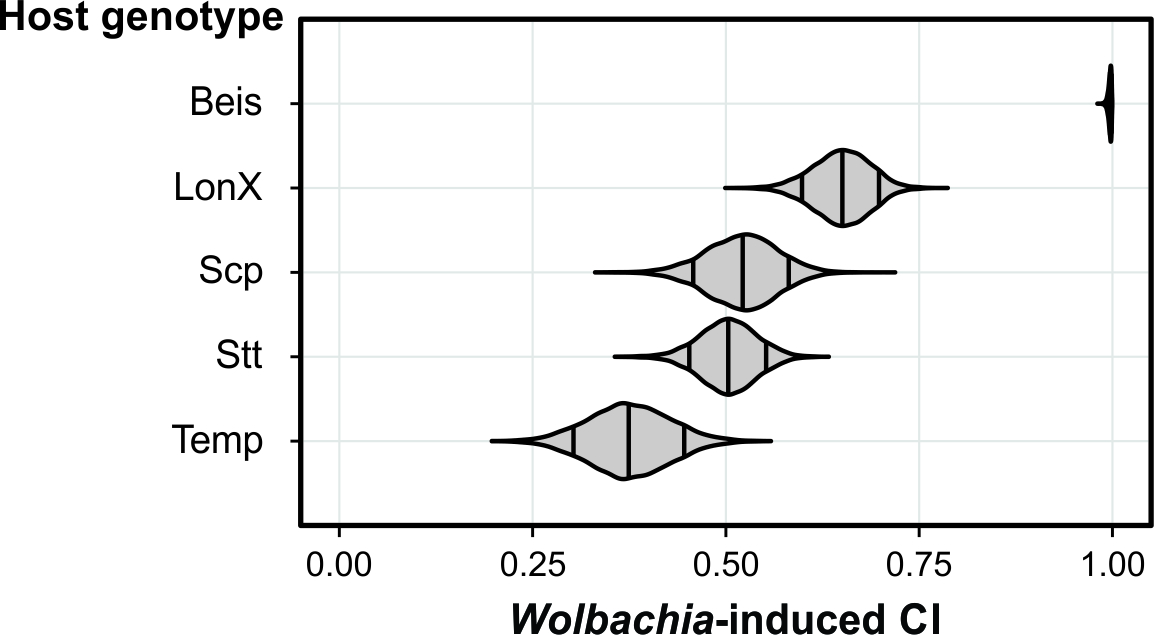Host-symbiont interactions
Maternally inherited symbionts are an important component of arthropod ecology and evolution. These symbionts can spread rapidly within arthropod populations by manipulating host reproduction. Tetranychus and Bryobia mite populations are typically infected by various maternally transmitted symbionts (Wolbachia, Cardinium, Spiroplasma, and Rickettsia), making it attractive model systems to study the molecular-genetic mechanisms that drive symbiosis. We currently focus on dissecting Wolbachia-mediated cytoplasmic incompatibility and parthenogenesis from the perspective of host and Wolbachia.

Our long-term goal is to further unravel the eco-evolutionary drivers that underlie the Wolbachia pandemic in arthropod hosts, with a focus on trait and genome evolution. Our work also contributes to the development of effective and stable Wolbachia-based pest management.
Hybrid dysfunction
Incompatible matings can result in dysfunctional hybrid offspring that suffer from sterility and inviability. Hybrid dysfunction is a strong isolating barrier that drives speciation and maintains species barriers and its underpinning genetic processes have captivated evolutionary biologists since the early 20th century. The Tetranychus genus is typified by widespread nuclear and mito-nuclear incompatibilities that cause multiple hybrid defects. We focus on characterizing the molecular basis of hybrid dysfunction and identifying the causal incompatibility alleles.
Herbivory
Plants defend themselves against herbivory by synthesizing toxic compounds. To counter these chemical defences, arthropods in turn develop an arsenal of enzymatic mechanisms, of which detoxification and transportartion are best studied. Cyanogenesis is a common plant defence mechanism that releases toxic cyanide upon herbivore feeding. Spider mites have acquired a cyanide detoxification gene by horizontal gene transfer from a free-living bacterium. We are currently building on the established functionality to fully couple varying levels of resistance to plant cyanogenesis to mite genotype and species. Here, we combine fieldwork with population and molecular biology.
Many plant tissues are nutritionally imbalanced and recalcitrant to digestion, including plant seeds. Our lab studies how certain ant taxa evolved a granivorous lifestyle.




